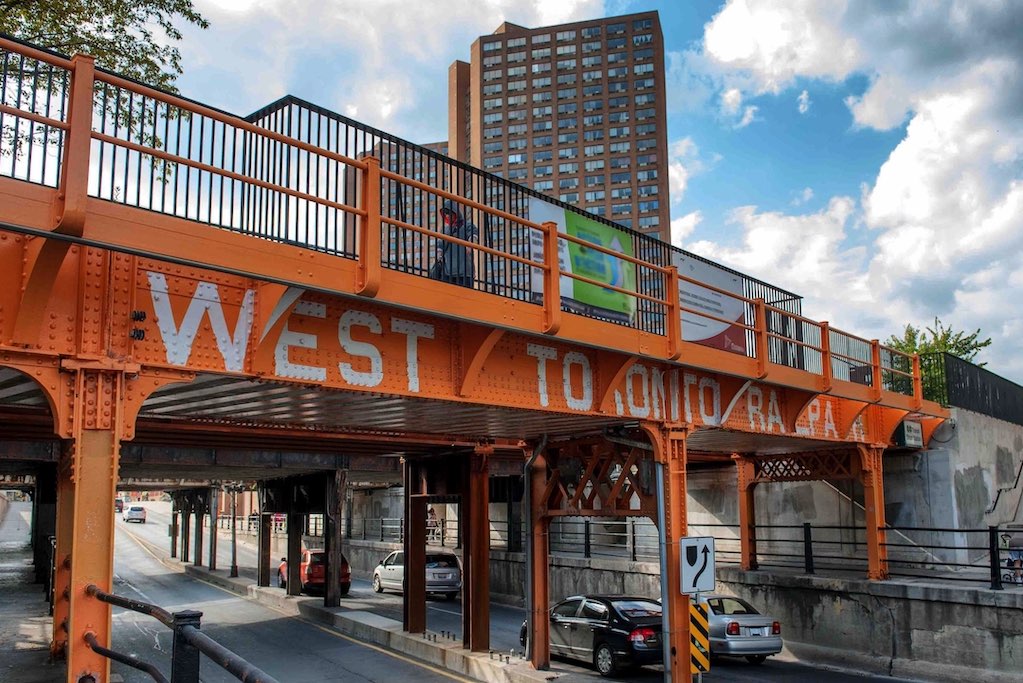Bike infrastructure and public transit are the backbone of any modern, forward-thinking city. Toronto has made significant strides toward a safer, more connected cycling network, but those hard-earned gains are now at risk. The Ontario government is reportedly planning legislation that could stop future bike lanes in their tracks.
A new proposal revealed by CBC News shows the provincial government considering a law that would prevent the construction of bike lanes if it means reducing lanes for cars. This regressive move could undo years of progress in building safe, protected bike lanes not just in Toronto, but across the province.
While some have argued that bike lanes cause congestion, the reality is that Ontario’s cities desperately need more cycling infrastructure, not less. Toronto’s bike network remains insufficient, leaving cyclists vulnerable and far behind other major cities when it comes to safe cycling options.
🫤 as a public health doctor (and avid cyclist) this idea is regressive and repulsive. Bike lanes are important. Good for health, safety & the environment. https://t.co/bjzwoQpH7Z
— Thomas Piggott MD PhD (@twpiggott) September 20, 2024
For a list of just a few of the many benefits bike lanes provide cities and residents who don’t even ride a bicycle, check out this article.
Although the Ford government in Ontario seems to think building highways and roads will ease congestion, one would be hard-pressed to find anywhere this is true. Hello, Los Angeles? What works is massive investment in public transit and other alternative transportation options including cycling. Not to mention, stopping suburban sprawl development that forces people to rely on cars to commute to work. Not surprisingly, a form of development favourite by this government.
“It’s not good policy but it may make good politics. As a policy, it will be ineffective and dangerous,” Matti Siemiatycki, an assistant professor in the University of Toronto’s geography and planning department, told the Toronto Star.
“Cycling in the city is a wedge issue. It’s part of a culture war. We have too many cars and not enough space.”
Cycle Toronto, the leading advocacy group for cyclists in the city, has strongly condemned the proposal. “We’ve made so much progress. But it could all be undone, all at once,” the group warned. The legislation would severely limit the ability of municipalities to expand their cycling networks, putting countless projects at risk. This isn’t just a Toronto issue—it affects towns and cities across the province that are working to create safer, more vibrant streets for everyone.

West Toronto Railpath cycling route in Toronto
Cycle Toronto emphasizes that reducing car dependency is key to easing traffic congestion and building a greener, healthier future. The argument isn’t just about bike lanes versus car lanes—it’s about giving people more transportation options. Bike lanes are critical to achieving net-zero emissions, improving public health, and creating communities where trips to school, work, or the store don’t always have to be made by car.
The group also points out that bike lanes aren’t just about getting from A to B—they save lives. They provide freedom and mobility to people of all ages, improve local business by increasing foot traffic, and are essential for reducing pollution and creating a livable, sustainable future.
But Ford’s proposed legislation threatens to undo all of that. By allowing a small minority of car-first voices to dominate the conversation, this move could set Ontario back by decades in its effort to build safer, more accessible streets.
To fight back, Cycle Toronto has launched a petition urging Ontarians to stand against the government’s plan. “We love our communities’ bike lanes, and we don’t want the province deciding where they can or can’t be built,” the group says. Bike lanes are vital to creating a city that works for everyone, not just drivers.
The time to act is now. As the legislation looms, it’s critical that cyclists, businesses, and all those who believe in a greener, more connected future, speak up and defend the progress that’s been made. Ford’s government may claim to be addressing gridlock, but removing bike lanes from the equation will only make things worse. More cars on the road isn’t the solution—it’s the problem.
Cyclists and allies must continue to push for the infrastructure that will create a better, healthier, and more sustainable Ontario.







